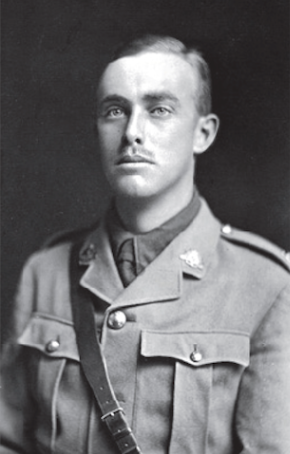Keith Officer
Australian public servant and diplomat From Wikipedia, the free encyclopedia
Sir Frank Keith Officer, OBE, MC (2 October 1889 – 21 June 1969) was an Australian public servant and diplomat, best known for his postings in ambassadorial positions around the world.
Sir Keith Officer | |
|---|---|
 | |
| Australian Ambassador to France | |
| In office 18 April 1950 – March 1955 | |
| Preceded by | William Hodgson |
| Succeeded by | Alfred Stirling |
| Australian Ambassador to China | |
| In office 15 November 1948 – 17 October 1949 | |
| Preceded by | Douglas Copland |
| Succeeded by | Vacant |
| Australian Minister to the Netherlands | |
| In office 1946–1948 | |
| Preceded by | John Hood |
| Succeeded by | John Quinn |
| Personal details | |
| Born | 2 October 1889 Toorak, Victoria, Australia |
| Died | 21 June 1969 (aged 79) Southampton, England |
| Alma mater | University of Melbourne (LLB) |
| Occupation | Public servant and diplomat |
| Civilian awards | Knight Bachelor |
| Military service | |
| Allegiance | Australia |
| Branch/service | Australian Imperial Force |
| Years of service | 1914–1919 |
| Rank | Major |
| Battles/wars | First World War |
| Military awards | Officer of the Order of the British Empire Military Cross Mentioned in Despatches (3) |
Life and career
Summarize
Perspective
Keith Officer was born on 2 October 1889 in Toorak, Melbourne.[1] He was educated at Melbourne Grammar School and Melbourne University where he was resident at Ormond College.[2]
Between 1914 and 1918, Officer served with the First Australian Imperial Force in Egypt, Gallipoli, France and Belgium.[3]
From 1919 to 1923, Officer was a political officer of the British Colonial Service in Nigeria.[4]
He joined the Australian Department of External Affairs in 1927.[5]
In 1940, Officer was appointed counsellor to the Australian legation in Japan,[6] second in command to Sir John Latham.[7] He was Charge d'Affaires in Tokyo when the Pacific War broke out.[8]
Between 1946 and 1948, Officer was Australian Minister to the Netherlands.[9][10] Officer was offered the post of Australian Minister to Moscow in 1947.[11]
In 1948, Officer was appointed Australian Ambassador to the Republic of China.[12][13] He was recalled from Nanjing in November 1949 to consult with the Department of External Affairs on the recognition by the United Kingdom of the Communist Government in China.[14]
Between 1950 and 1955 Officer was Australian Ambassador to France.[15] He retired from the Commonwealth Public Service at the end of March 1950.[15] His retirement prompted External Affairs Minister Richard Casey to write a letter touching on Officer's work, in which he said: "you can properly regard yourself not only as one of the founders of the Australian Foreign Service but as a model which men of succeeding generations can seek to emulate."[16]
Awards
In 1917, Officer was awarded the Military Cross.[17] He was appointed an Officer of the Order of the British Empire in 1919.[18] In the 1950 Birthday Honours he was made a Knight Bachelor, for services as ambassador in Paris.[19]
References
Further reading
Wikiwand - on
Seamless Wikipedia browsing. On steroids.
